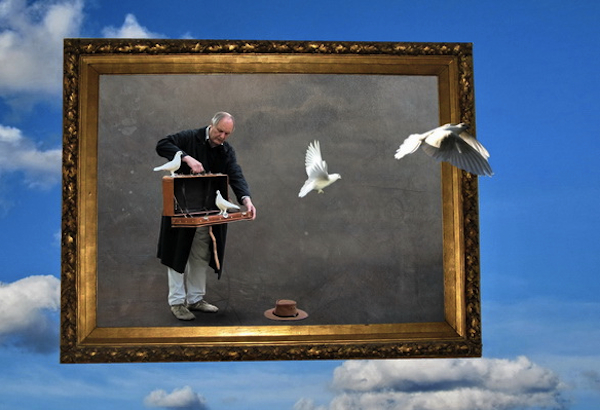Essays
Free Will and the Reality of Love

July 31, 2013
Many readers continue to express confusion—even outrage and anguish—over my position on free will. Some are convinced that my view is self-contradictory. Others are persuaded of its truth but find the truth upsetting. They say that if cutting through the illusion of free will undermines hatred, it must undermine love as well. They worry about a world in which we view ourselves and other people as robots. I have heard from readers struggling with clinical depression who find that reading my book Free Will, or my blog articles on the topic, has only added to their troubles. Perhaps there is more to say…
First, I’d like to address the common charge that it is simply self-contradictory to talk about the illusoriness of free will while using words such as “choice,” “intention,” “decision,” “deliberation,” and “effort.” If free will is an illusion, it would seem, these qualities of mind must be illusory as well. In one sense, this is true. It would perhaps be more precise to speak of “apparent choices.” But the distinction isn’t generally relevant at the level of our experience. In terms of experience, there is no contradiction between truth and appearance. Even in the absence of free will, I find that I can speak of choices, intentions, and efforts without hedging.
Consider the present moment from the point of view of my conscious mind: I have decided to write this blog post, and I am now writing it. I almost didn’t write it, however. In fact, I went back and forth about it: I feel that I’ve said more or less everything I have to say on the topic of free will and now worry about repeating myself. I started the post, and then set it aside. But after several more emails came in, I realized that I might be able to clarify a few points. Did I choose to be affected in this way? No. Some readers were urging me to comment on depressing developments in “the Arab Spring.” Others wanted me to write about the practice of meditation. At first I ignored all these voices and went back to working on my next book. Eventually, however, I returned to this blog post. Was that a choice? Well, in a conventional sense, yes. But my experience of making the choice did not include an awareness of its actual causes. Subjectively speaking, it is an absolute mystery to me why I am writing this.
My workflow may sound a little unconventional, but my experience of writing this article fully illustrates my view of free will. Thoughts and intentions arise; other thoughts and intentions arise in opposition. I want to sit down to write, but then I want something else—to exercise, perhaps. Which impulse will win? For the moment, I’m still writing, and there is no way for me to know why—because at other times I’ll think, “This is useless. I’m going to the gym,” and that thought will prove decisive. What finally causes the balance to swing? I cannot know subjectively—but I can be sure that electrochemical events in my brain decide the matter. I know that given the requisite stimulus (whether internal or external), I will leap up from my desk and suddenly find myself doing something else. As a matter of experience, therefore, I can take no credit for the fact that I got to the end of this paragraph.
But the apparent reality of choice remains intact. It isn’t wrong to say that I decided to write this post—and it certainly isn’t wrong to say that my writing it requires some conscious effort. I can’t write it by accident, or in my sleep. The writing itself is clearly the product of my unconscious mind—I cannot know, for instance, why one word or bit of syntax comes forward and another doesn’t—but the entire project requires consciousness to come into being. Certain things cannot be thought or done unless they are warmed by the light of conscious awareness. I am, after all, writing about what it is like to be me at this moment—and it would be like nothing to be me without consciousness.
What many people seem to be missing is the positive side of these truths. Seeing through the illusion of free will does not undercut the reality of love, for example—because loving other people is not a matter of fixating on the underlying causes of their behavior. Rather, it is a matter of caring about them as people and enjoying their company. We want those we love to be happy, and we want to feel the way we feel in their presence. The difference between happiness and suffering does not depend on free will—indeed, it has no logical relationship to it (but then, nothing does, because the very idea of free will makes no sense). In loving others, and in seeking happiness ourselves, we are primarily concerned with the character of conscious experience.
Hatred, however, is powerfully governed by the illusion that those we hate could (and should) behave differently. We don’t hate storms, avalanches, mosquitoes, or flu. We might use the term “hatred” to describe our aversion to the suffering these things cause us—but we are prone to hate other human beings in a very different sense. True hatred requires that we view our enemy as the ultimate author of his thoughts and actions. Love demands only that we care about our friends and find happiness in their company. It may be hard to see this truth at first, but I encourage everyone to keep looking. It is one of the more beautiful asymmetries to be found anywhere.